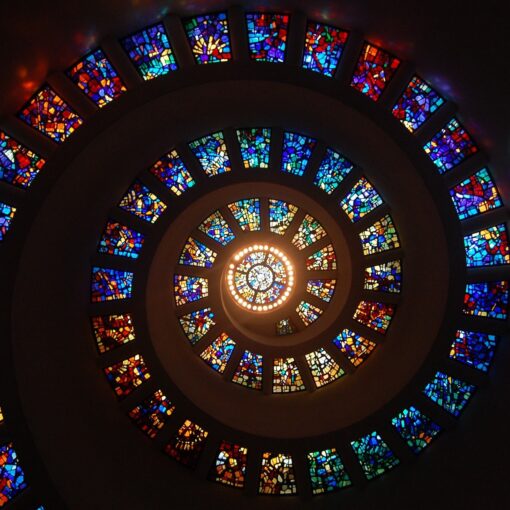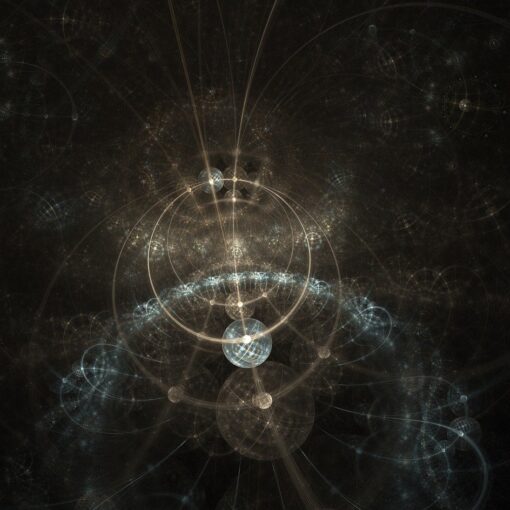‘With regard to authority, it is the greatest weakness to attribute infinite credit to particular authors, and to refuse his own prerogative to time, the author of all authors, and, therefore, of all authority. For truth is rightly named the daughter of time not of authority. It is not wonderful, therefore, if the bonds of antiquity, authority, and unanimity have so enchained the power of man, that he is unable (as if bewitched) to become familiar with things themselves’.
Francis Bacon, Novum Organum (1620)
Timeocracy is the state of human society where science and the science of time are recognised as the grounding insight for the protection of all life by all people.
What relativity and quantum sciences uncovered at the beginning of the twentieth century was a ‘Cosmos-Lifos-Micros’ of such spectacular complexity, that time became an essential parameter for scientific endeavour.
So a crisis that unveils over 500 years is quite different from that we confront over five years.
Space and scale are dimensions of time, while life is defined by each temporal moment and the longevity of each natural cycle, including our own lives.
Even while much human consciousness and education remains stuck in pre-temporal – spatial logic – one that excludes time except on its entropic arc: the so-called ‘arrow of time’.
This old way of ‘thinking’ based on single-journey ‘solid-static’ presuppositions, limits the human capacity to look again, to change, or to integrate existing lives with a Universe of constant dynamic transformation, defined by time itself.
Everything about how we comprehend the Universe ‘scientifically’ has become more dynamic, more creative and more potential. We have ever more information, ever more data.
We actually exist in a Universe of exquisit mass abundance.
Yet human civilization is still struggling to update key assumptions about our pasts, presents and futures.
R.B. Fuller explains that visiting universities in the 1950s, 60s and 70s, he often asked his educated audiences: ‘what is the opposite of the scientific principle of entropy?’ And in general, people had no answer.
Probably the single most important Universal principle still remains largely unknown or diminished.
Fuller named his science ‘Synergetics’ (1975, 1979) after the principle of synergy.
Life is synergetic. Communication is a synergetic function or action, that is viewed and revealed via temporal human values.
Our communication is the physics of synergy played out by living beings. And yet human civilization has missed all this.
The essential principle of life is synergy, each of us offsetting Universal ‘heat-reducing’ entropy through the interactions of communication.
Even while the synergy of life remains sidelined or reduced as a central way of viewing and working in the world.
Now, fifty years of scientific investigation has witnessed a rapid and on-going deterioration of world life-support systems, pure entropy.
Leaders in many scientific disciplines are calling for change based on measurable data and the intuition of higher domains of synergy perhaps?
Yet a big question arises.
Can a political-economic system only just being put in place at global-scale, be changed ‘in time’ to avert the ‘global catastropic risks’ now in plain sight?
Communication ethics suggests it is possible, if all people, working as citizen-scientists, practice a new-old way of evaluating their multiple worlds in the ‘court of time.’
Science is underscored by being a human domain. One that embodies an ethics of concern for life and its synergies.
This concern is constituted through public agreement of what defines knowledge, thus science, over time.
Knowledge changes, so we must too or risk reversing into catastrophe using mirrors that are dulled by old ideas?
A public inquiry into new concerns for life and human wellbeing are thereby scientifically grounded using updated ‘temporal logics’ that include synergetic human values, aided by the latest digital technologies.
The computer and computer networks are actually time machines, as many researchers have concluded.
Digital media return enormous power for self-group learning to every global citizen.
This capability is defined by the profound speeds and coverage of digitally-integrated media, literally making of our world a single ‘global village’.
We are each now ‘citizen-scientists’ making our own and collective inquiry into the issues that define ‘our times’.
Citizen science bows to a broader concern, that of the wellbeing of people, without which, no science would have a legitimate purpose.
In a Timeocracy, the examination of human values for the protection of life, is the highest action, one held by every citizen.
All types of life, all life values, all actions, all citizens, all times.




